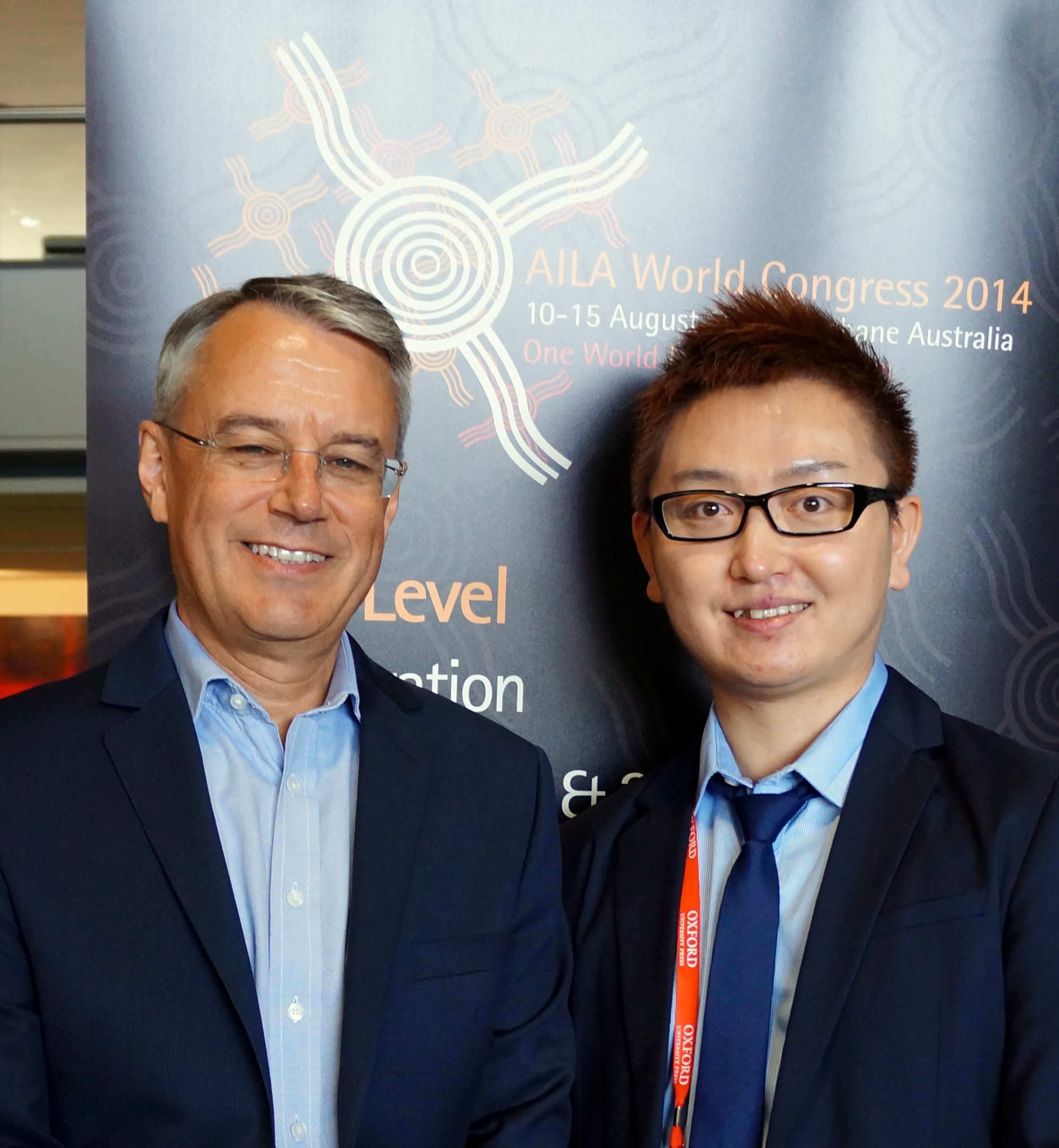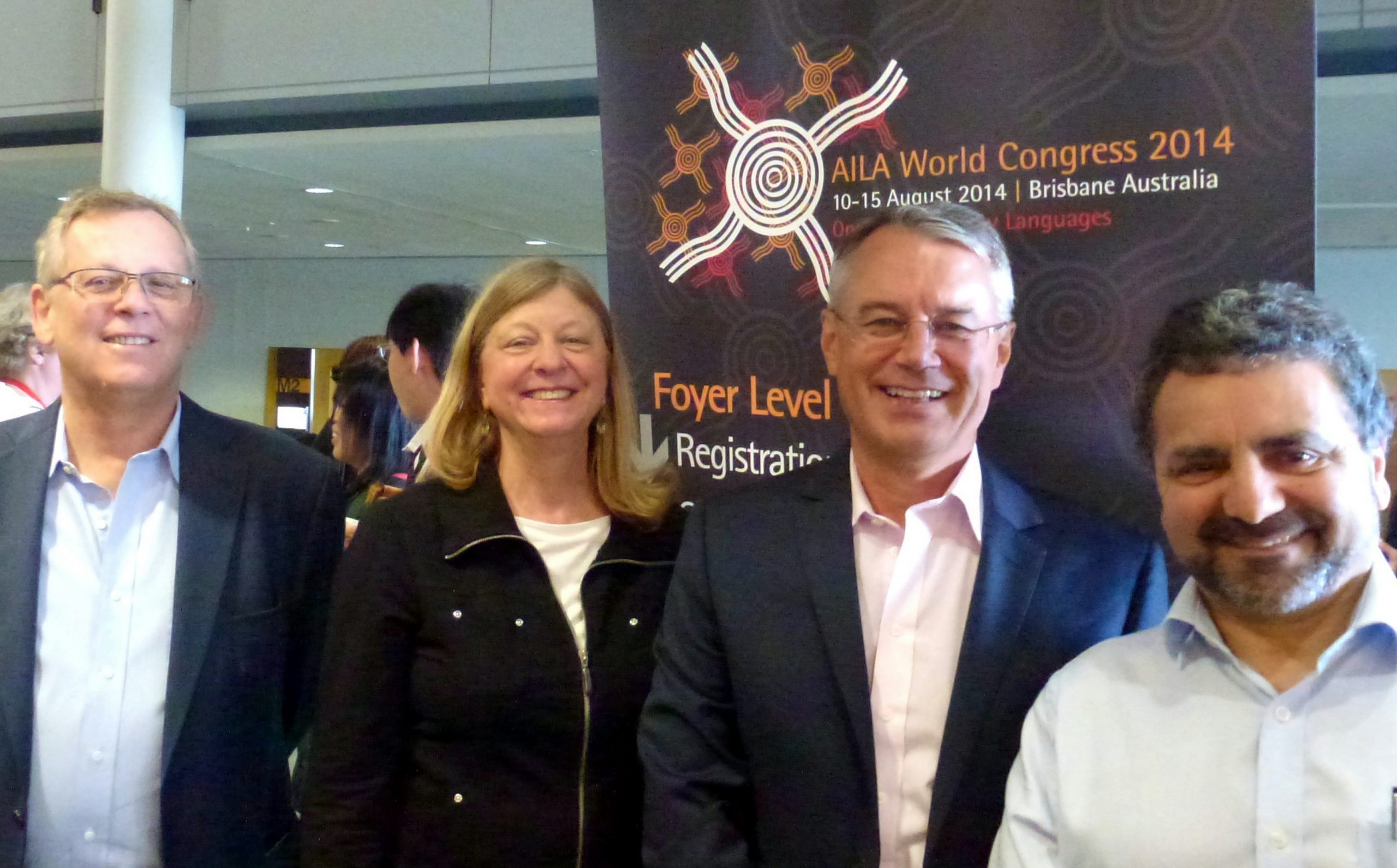
Editor’s note: This piece includes conference summaries from four TIRF Trustees who attended the AILA World Congress earlier this month. We would like to recognize Mr. Michael Carrier, Dr. Jodi Crandall, Dr. Joe Lo Bianco, and Dr. Nick Saville for their contributions to this article.
The AILA (Association Internationale de Linguistique Appliquée, or in English, International Association of Applied Linguistics) World Congress is one of the largest gatherings of language teaching specialists and applied linguists. It is held every 3 years. This year was the 50th AILA anniversary conference, which was held in Brisbane, Australia, and brought together more than 1,600 participants from 80 countries. Given the setting, the conference drew a large number of participants from Asian and Pacific countries, from not only China and Japan, but also Bangladesh, India, Indonesia, Korea, Malaysia, Philippines, Singapore, Sri Lanka, Taiwan, and of course, Australia and New Zealand. In all, 1,510 participants made presentations at the conference, including 1,018 papers, 32 workshops, 56 symposia, and 222 posters. One very promising aspect of this year’s Congress was the large number of graduate students and new graduates on the program.
A number of sessions of special interest to those who teach or prepare teachers of English included symposia focused on Content and Language Integrated Learning (CLIL), the significance of English as a Lingua Franca (ELF), and interdisciplinary approaches to language teaching and learning. Plenary addresses were given by Lourdes Ortega, who pointed to the role of experience in explaining the success (or lack thereof) of adult second language learners, and Li Wei, who discussed the implications of Chinglish (a mix of Chinese and English), as it is spoken by young Chinese, for rethinking World Englishes, language teaching and learning, and language planning and policy.
In addition, at this year’s AILA World Congress, there was an active Research Network for those interested in language testing and assessment. The conference was well attended by a cross-section of language testers from around the world, including some of the most recognizable names in the field and a good number of early-career researchers.
The Research Network’s invited symposium was convened by Dr. Sara Weigle (Georgia State University). Entitled “Technology in Language Testing: Automated Scoring and Beyond,” the session included two papers each from Educational Testing Service and Cambridge English Language Assessment and one from Pearson Education. The discussant was Dr. April Ginther (Purdue University). The papers presented during this symposium were as follows:
- “Automated Scoring for Performance-based Language Tests: Promises, Perils and Validity Issues,” by Xiaoming Xi, Educational Testing Service.
- “Construct Representation and the Structure of an Automated Scoring Engine: Issues and Uses,” by Paul Dean, Educational Testing Service.
- “Can You ‘Game the System’ by Responding Off-topic in the Speaking Section of the PTE Academic?” by Alistair Van Moere, Pearson Knowledge Technologies.
- “The Role of Technology in Learning Oriented Assessment (LOA),” by Nick Saville, Neil Jones, and Miranda Hamilton, Cambridge English Language Assessment.
- “Automatic Writing Assessment and Feedback: An Approach to Improve Construct and Consequential Aspects of Validity,” by Ardeshir Gerenpayeh, Gad Lim, and Helen Yannakoudakis, Cambridge English Language Assessment.

TIRF was well represented at this year’s AILA World Congress. Dr. Nick Saville presented in the symposium mentioned above and Dr. Jodi Crandall participated in one on “Language and Education in Multilingual Settings.” Mr. Michael Carrier led a symposium, which was entitled “Adopting Mobile Learning Technology for English: Benefits and Challenges,” on the issues in mobile and digital learning. And Dr. Joe Lo Bianco gave three presentations. Two were as a panelist, first in the English as a Lingua Franca colloquium organized by Professor Barbara Seidlhofer of the University of Vienna, and second in a Symposium on the Australian Curriculum. The new nationally coordinated curriculum for Australia, which is being organized by Dr. Michael Walsh from The University of Sydney, is being implemented over the next two years. Dr. Lo Bianco also delivered a paper on peace building as a new paradigm in language planning, in which he reported on a UN-funded project he is directing in Malaysia, Myanmar, and Thailand.
Several TIRF supporters participated in a symposium about MALL (mobile-assisted language learning).This session featured an excellent panel of reputable academics discussing MALL-related issues — Dr. Phil Hubbard from Stanford, Dr. Christina Gitsaki from Higher Colleges in Abu Dhabi, Dr. Jodi Crandall from University of Maryland, Baltimore County, and Dr. Aga Palalas from Athabasca University in Canada. Both Mr. Carrier and Dr. Crandall made reference to the TIRF MALL papers and gave the audience links to TIRF’s online resources.

